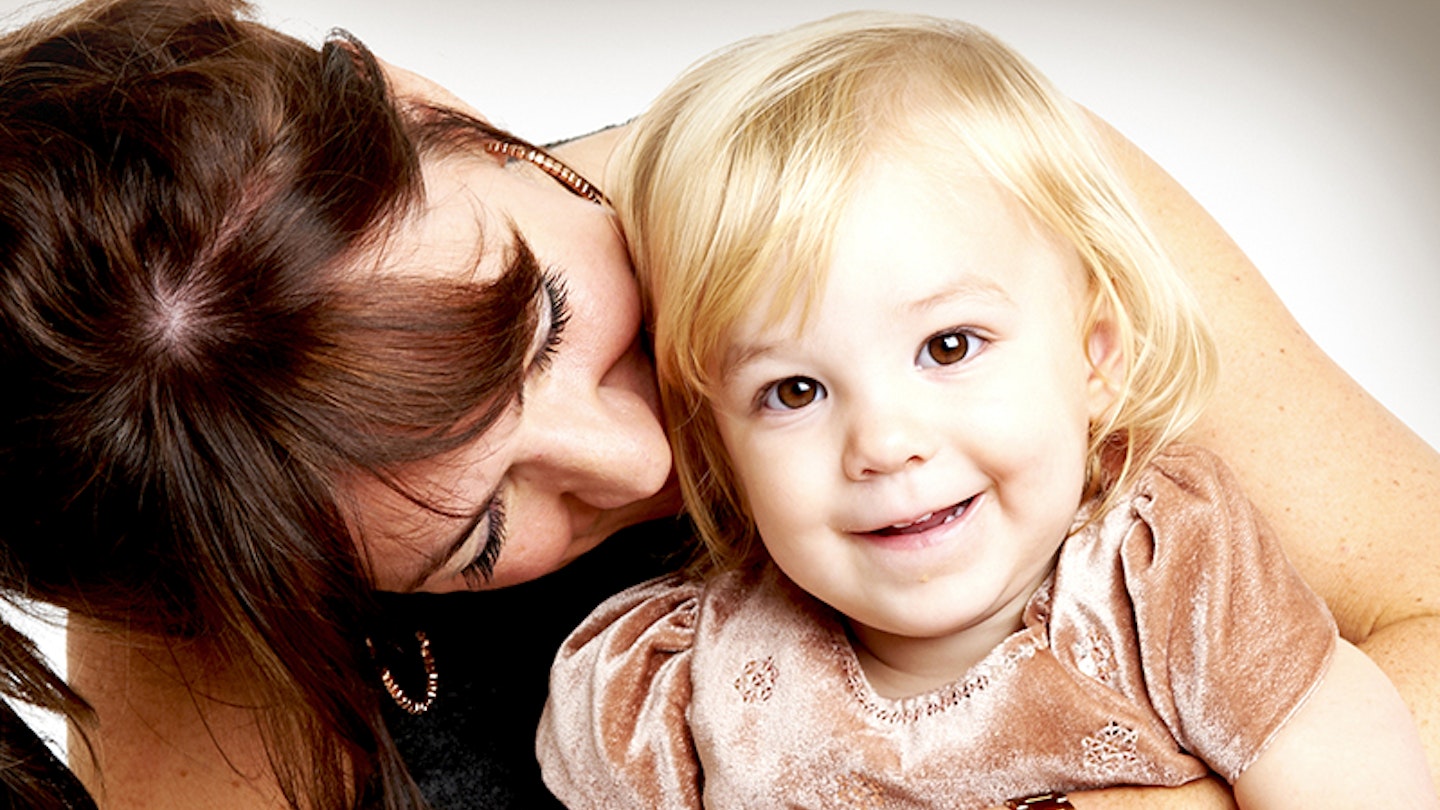Pregnant Karen Rosco-Bailey, 43, from Wakefield, is already mum to Georgia, 4, conceived during a second round of IVF.
Karen struggled to conceive again after Georgia’s birth, and was about to have her sixth round of IVF when she fell pregnant naturally.
She had the IONA test at 13 weeks after her midwife advised her that she was in the high-risk category.
We were over the moon to fall pregnant with our second child. So when we had the combined scan and blood test at 12 weeks it was very upsetting to discover that the baby had a 1 in 27 chance of having Down’s, Edwards’ or Patau syndromes.
Having become pregnant naturally, it was like a miracle, and I’d thought, this can’t be taken away now
This was devastating news. Having become pregnant naturally, it was like a miracle, and I’d thought ‘this can’t be taken away now’. Because I was over 40, I did expect to have to have more tests, but this was still a shock.
The midwife gave me four options. Firstly, to wait until the 20-week scan to see if it would give us more information about the baby and abnormalities.
Secondly, CVS, which carried a 2% risk of miscarriage. The results would take five days to come back but there was a danger I could miscarry for up to two weeks after that.
The third option was to wait for the 15-week mark then have an amniocentesis test which had a 1% risk of miscarriage.
And finally, the IONA test, the non-invasive option.
>> READ: “I WAS THE FIRST WOMAN IN THE UK TO BE OFFERED THE IONA TEST”
I jumped at that one, but the midwife told me that the test would be sent off to Hong Kong and it could take up to three weeks to get the results back.
She went on to say that the results would say ‘Likely’, ‘Unlikely’ or ‘No result’ which may mean that I’d still want to go for further diagnostic tests to make sure.
She almost made it sound like a negative option so I reluctantly opted for the CVS because I could have the test the next day.
But when I went to Leeds General Infirmary and saw a consultant he explained that things with the IONA test had progressed: there was now a clinic in Manchester that would get us the results within three to five working days, for a fee of £300.
>> WATCH: IVF BABY’S JOURNEY FROM CONCEPTION TO BIRTH ON VIDEO
And there was no risk of miscarriage, which made up my mind.
The 1% risk of losing my miracle baby during an invasive test seemed huge. IONA took away that risk
Conceiving naturally was such a wonderful surprise for me and my partner, and the 1% risk of losing my miracle baby during an invasive test seemed huge. IONA took away that risk.
The consultant also told me that the IONA test could tell the sex of the baby. To be honest, that didn’t matter to me at that stage but I told him that we’d like to know: it was a bonus!
I spent five days with my heart in my mouth, constantly checking my phone – I can’t imagine how difficult it would be to have to wait any longer.
I just kept thinking, the longer a test takes, the more developed the baby. If the results came back with Edwards or Patau’s and I would lose my baby, I would want that to be as early as possible in the pregnancy.
When the test results came back negative, it was an enormous relief. My midwife called with the welcome news that the result had been ‘Highly unlikely’, and that we were having a girl!
Though IVF was challenging, I’d go through it again because the results are so worth it.
I’m enjoying my pregnancy. Apart from a huge bump, I wouldn’t even know I was pregnant. I’ve just passed the 25-week mark and I feel really well. The baby is due in mid-August and we can’t wait to meet her.
